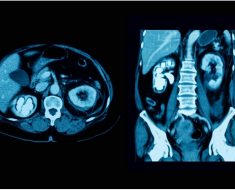You know it’s important to eat right, exercise and keep your cholesterol under control to reduce your risk of a heart attack of stroke. If that’s not enough of an incentive, new research suggests that taking care of your cardiovascular system will pay off for your brain as well.
A study of more than 6,600 senior citizens found that the better they scored on seven measures of cardiovascular health, the lower their risk of dementia over the ensuing years.
The difference was dramatic: Among those with the lowest scores, dementia developed at a rate of 13.3 cases per 100 people. But among those with the highest scores, there were only 7.1 cases per 100 people.
The results, published Tuesday in the Journal of the American Medical Association, should prompt doctors and patients alike to focus on cardiovascular fitness for the sake of preserving cognitive health, experts said.
“To achieve a lifetime of robust brain health free of dementia, it is never too early or too late to strive for attainment of idea cardiovascular health,” Dr. Jeffrey Saver, a leader of the UCLA Stroke Center, and Dr. Mary Cushman of the University of Vermont wrote in an editorial that accompanies the study. “Given the aging population, this positive health message is important to communicate to all members of society.”
There have already been many clues that vascular problems can translate into brain problems. Narrowed, blocked or leaky blood vessels can lead to strokes, which are the No. 2 cause of dementia (after Alzheimer’s disease). Observational studies have turned up connections between cardiovascular conditions in midlife and cognitive conditions in late life.
The new study adds to the picture by focusing on adults who are already in their senior years.
The data came from the Three-City Study, a research effort from France that enrolled residents of Bordeaux, Dijon and Montpellier. All of the participants were at least 65 years old when they enrolled in the study (their average age was 73.7 years). Upon joining, they were given a battery of physical and cognitive tests.
For the JAMA report, the researchers focused on seven metrics of cardiovascular health that the American Heart Assn. call Life’s Simple 7. Four of the metrics are behavioral (diet, exercise, weight management and smoking status) and three are biological (blood pressure, blood sugar and cholesterol).
Study participants were given a score of 0, 1 or 2 for each of the categories, to reflect whether their compliance with the AHA’s targets was “poor,” “intermediate” or “optimal.” For example, to earn two points for a healthy diet, people had to eat at least one portion of fresh fruit, one portion of raw vegetables, and one portion of cooked fruit or vegetables each day, plus at least two portions of fish each week. To earn two points for weight, they had to have a body mass index under 25; to earn two points for blood pressure, they needed a reading below 120/80 mm Hg without the assistance of medication.
High scores were rare. Only 6.5 percent of study participants had optimal measurements for at least five of the seven categories. At the other end of the spectrum, 36.4 percent of participants received optimal scores in no more than two categories.
The 6,626 seniors in the study were tracked for an average of 8.5 years. During that time, 745 of them were diagnosed with dementia.
The risk wasn’t the same for everyone.
Among those with optimal levels for none or just one of the seven metrics, the diagnosis rate was 1.76 dementia cases per 100 person-years (a measure that accounts for the number of people in the study and the length of time they participated). For each additional metric that was at optimal levels, the risk of dementia fell by about 10 percent.
The study authors put it like this: Imagine a 73-year-old man who has a low level of education and does not carry a well-known genetic variant linked with an increased risk of Alzheimer’s disease. If this man did not meet any of the AHA standards, it would take about six years for his global cognitive level to fall by one “standard unit.” However, if he met all seven of the AHA standards, it would take twice as long for his cognitive level to decline by the same amount.
The authors acknowledged that getting people to upgrade from poor to optimal status on Life’s Simple 7 would be “challenging.” Simply motivating them to reach “intermediate” status would be much more doable, and still quite valuable, they wrote.
Source: Read Full Article





